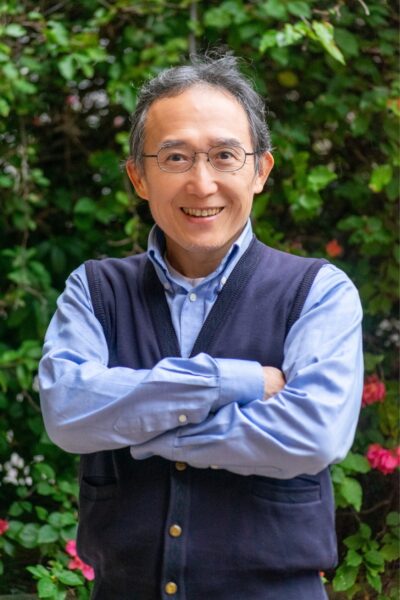
- This event has passed.
Special Seminar: Shenqyang (Steven) Shy
August 14, 2023 @ 10:00 am - 11:00 am
Title:
Spark Ignition Transitions in Premixed Turbulent Combustion
Abstract:
Recent discoveries and developments on the dynamic process of premixed turbulent spark ignition are reviewed. The focus here is on the variation of turbulent minimum ignition energies (MIET) against laminar MIE (MIEL) over a wide range of r.m.s. turbulence fluctuation velocity (uʹ) alongside effects of the spark gap between electrodes, Lewis number, and some other parameters on MIE. Two distinguishable spark ignition transitions are discussed. (1) A monotonic MIE transition, where MIEL sets the lower bound, marks a critical uʹc between linear and exponential increase in MIET with uʹ increased. (2) A non-monotonic MIE transition, where the lower bound is to be set by a MIET at some uʹc, stems from a great influence of Lewis number and spark gap despite turbulence. At sufficiently large Lewis number >> 1 and small spark gap (typically less than 1 mm), turbulence facilitated ignition (TFI), where MIET < MIEL, occurs; then MIET increases rapidly at larger uʹ > uʹc because turbulence re-asserts its dominating role. Both phenomena are explained by the coupling effects of differential diffusion, heat losses to electrodes, and turbulence on the spark kernel. In particular, the ratio of small- scale turbulence diffusivity to reaction zone thermal diffusivity, a reaction zone Péclet number, captures the similarity of monotonic MIE transition, regardless of different ignition sources (conventional electrodes versus laser), turbulent flows, pressure, and fuel types. Furthermore, TFI does and/or does not occur when conventional spark is replaced by nanosecond- repetitively-pulsed-discharge and/or laser spark. The latter is attributed to the third lobe formation of laser kernel with some negative curvature segments that enhance reaction rate through differential diffusion, where MIEL < MIET (no TFI). Finally, the implications of MIE transitions relevant to lean-burn spark ignition engines are briefly mentioned, and future studies are suggested.
Bio:
 Shenqyang (Steven) Shy is currently a Distinguished Professor in the Department of Me- chanical Engineering at National Central University in Tao-yuan City, Taiwan. He earned his Ph.D. from the Aeronautics and Astronautics Department of the University of Wash- ington, Seattle, U.S.A. in 1990. He held a postdoctoral appointment in the Department of Mechanical and Aerospace Engineering at Princeton University for one and a half years and a position as Associated Professor in the Department of Mechanical Engineering at National Central University before assuming his Professorship at NCU in 1997. Prof. Shy was the Director of the Center for Energy Research in the College of Engineering at Na- tional Central University from 2003 to 2014. He served as an Associate Editor and Editorial Board Member of Proceedings of the Combustion Institute during 2008–2013 for six years. Prof. Shy was the former Taiwan Section Chair of The Combustion Institute during 2010–2014. He was elected as a Fellow of The Combustion Institute (2019 Class). Currently, Prof. Shy serves as an Editorial Board Member of Combustion and Flame, starting from 2023.01.01 to 2028.12.31 for a six-year term. He was the recipient of the Outstanding Research Award (2022) from the National Science and Technology Council, Taiwan.
Shenqyang (Steven) Shy is currently a Distinguished Professor in the Department of Me- chanical Engineering at National Central University in Tao-yuan City, Taiwan. He earned his Ph.D. from the Aeronautics and Astronautics Department of the University of Wash- ington, Seattle, U.S.A. in 1990. He held a postdoctoral appointment in the Department of Mechanical and Aerospace Engineering at Princeton University for one and a half years and a position as Associated Professor in the Department of Mechanical Engineering at National Central University before assuming his Professorship at NCU in 1997. Prof. Shy was the Director of the Center for Energy Research in the College of Engineering at Na- tional Central University from 2003 to 2014. He served as an Associate Editor and Editorial Board Member of Proceedings of the Combustion Institute during 2008–2013 for six years. Prof. Shy was the former Taiwan Section Chair of The Combustion Institute during 2010–2014. He was elected as a Fellow of The Combustion Institute (2019 Class). Currently, Prof. Shy serves as an Editorial Board Member of Combustion and Flame, starting from 2023.01.01 to 2028.12.31 for a six-year term. He was the recipient of the Outstanding Research Award (2022) from the National Science and Technology Council, Taiwan.
Professor Shy has extensive research experience in various research fields. Currently, he focuses on two research fields. (1) High-pressure, high-temperature lean premixed turbulent combustion relevant to gas turbine conditions, including gaseous and liquid fuels, from ignition and flame propagation to flame global quenching, with an emphasis on hydrogen and/or ammonia combustion. (2) Pressurized ammonia solid oxide fuel cells and their integration with micro gas turbines for hybrid power generation. His research is conducted in both the Combustion Physics Laboratory and the Energy and Environment Laboratory at National Central University.
